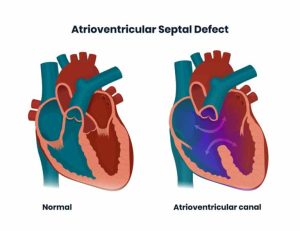During the first wave of the pandemic, adults with weight problems were overrepresented among those receiving in-depth COVID-19 care in Sweden. Over 39% of the population had weight problems, compared to only 16% of the general population. The dangers of extended hospitalization and dying in in-depth care units (ICUs) have become better for sufferers with weight problems, as an examination from the University of Gothenburg shows.
The goal of the study, which was published in the journal PLOS One, was to see if a high body mass index (BMI) affects the risk of dying or the length of hospital stay in COVID-19 patients receiving in-depth care in Sweden. Using the Swedish Intensive Care Registry (SIR), the researchers diagnosed all sufferers with COVID-19 who had been admitted to ICUs in Sweden in the course of the preliminary wave of the pandemic, in spring and summertime season 2020.
greater vulnerability to obesity A total of 1,649 people with COVID-19 were treated in intensive care units (ICUs) at universities, county, and nearby hospitals throughout Sweden. The effects show that sufferers with weight problems, i.e., a BMI of 30 kg/m2 or greater, have been overrepresented amongst people with COVID-19 receiving in-depth care in Sweden. The percentage in the study is 39.4%, whereas the corresponding figure for the general population is approximately 16%.
An excessive BMI raised the dangers of significant contamination with lengthy remains in in-depth care and of dying. A hyperlink became determined among those with a BMI over 30 and a 50% growth in mortality hazard, as compared with the ordinary-weight group. Among those who survived, a BMI of over 35 proved to be related to a hazard of in-depth care of over 14 days that became two times as excessive as the hazard for sufferers of ordinary weight. These analyses had been adjusted for age, gender, comorbidity, and the way the patient’s country of fitness became on arrival at the ICU.
Vigilant tracking is vital. Lovisa Sjögren, researcher at Sahlgrenska Academy, University of Gothenburg, and pediatrician at Sahlgrenska University Hospital and Halland Hospital Halmstad, is the examine’s first author. “For people with COVID-19 who’re in deep care, weight problems pose an accelerated hazard of dying, and amongst those who survive, weight problems boost the hazard of in-depth care lasting greater than 14 days. Based on our effects, weight problems ought to be covered as a critical hazard element in COVID-19.
Patients with weight problems who are afflicted by COVID-19 ought to be monitored closely, “she states.” The study is primarily based on the Swedish Intensive Care Register, and Sjögren points out that amazing registers are a fundamental precondition for research of this kind to be feasible. Some global research has proven a connection between excessive BMI and the hazard of becoming critically unwell with COVID-19. Many participants had been told that excessive BMI could increase the hazard of significant contamination on account of contamination with the SARS-CoV-2 coronavirus.
Obesity In Four Out Of Ten Adults With COVID-19 In Intensive Care. (2021, October 14). Obesity in four out of ten adults with COVID-19 in intensive care.








